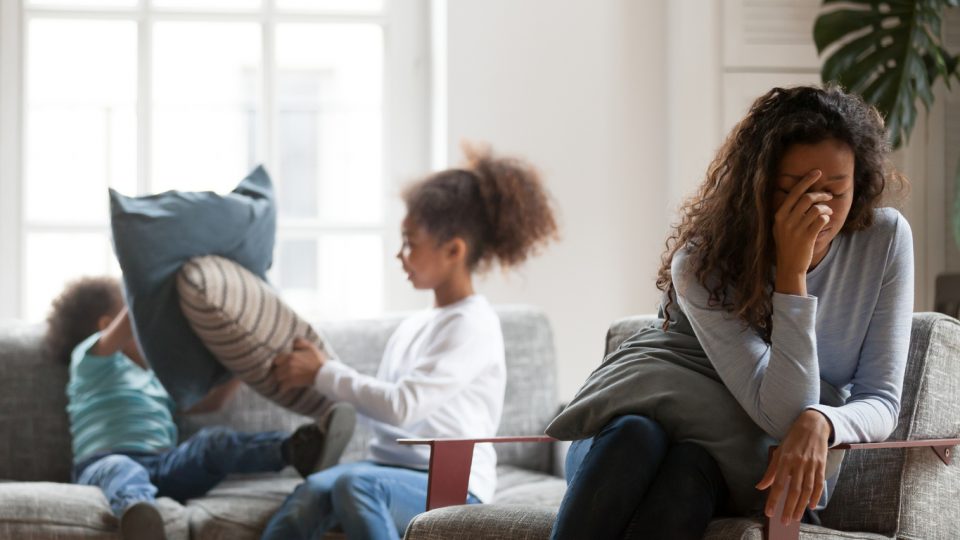By Cheryl Maguire
Jennifer Jones (name changed for privacy) first noticed feeling burned out when her daughter hit puberty. She said she felt, “emotionally and physically drained and that I’m absolutely failing as a parent in every way.” At her worst, she remembers thinking, “I’m doing it all here, giving it all of me, why isn’t everything perfect here? It must be me.” Her feelings of being overwhelmed and exhausted became so serve that she met with a counselor.
“I see parent burnout more with parents of teenagers than with parents of toddlers.”
“When you are a new parent, it’s early in your parenthood so you still feel like you are learning things. It’s not burnout until you feel like I’ve been doing this over and over and I keep getting the same results. They think, ‘I’m ineffective, They don’t listen to me and I’ve lost myself,’” says Dr. Sheryl Ziegler, psychologist, and author of, Mommy Burnout.
Parents of teenagers tend to have fewer support systems like mom clubs that are offered to parents with toddlers. A research study found that parents of middle-school-age children reported the highest levels of stress and loneliness compared to parents of other age groups. Another recent research study found that parental burnout strongly increases neglectful and violent behaviors towards their children.
According to experts Dr. Ziegler and Dr. Carla Naumburg, a clinical social worker and author of parenting books including How To Stop Losing Your Sh*t With Your Kids, some ways that parents can cope with feeling burnout are:
Spending time with friends or community
“My number one tip to overcome parent burnout is connecting with friends. That is something that goes by the wayside when parents are struggling. When you are working and raising children you feel like there is no time. And your friendships tend to be the first things that go,” says Dr. Ziegler.
Dr. Ziegler explains that most parents don’t realize how important friendships are to their emotional health. She discusses a research study that showed that when you spend time with friends the hormone oxytocin is released causing you to feel good. Friends can also provide a support system.
Focus on what works best for your family
Dr. Ziegler explains that some people think more options are better so parents spend hours researching the best camp or school. But she found that more options led to parents feeling burned out.
“Whatever a parent picks they feel like maybe the other option would have been better,” says Dr. Ziegler. “They can also get paralyzed in fear and either don’t make a decision or make a poor decision based out of fear.”
She recommends prioritizing what is necessary by differentiating between wants and needs. She suggests shifting your mindset from “the best” to what works for your family.
Focus on doing just one thing at a time
Dr. Naumburg stresses the importance of avoiding multitasking. She offers the example of the more balls you have in the air the more likely you will drop one. She says, “Multitasking is a primary driver of burnout.” She suggests that you accept that you will not get everything done and encourage your kids to help with chores.
Remember you not responsible for our kids’ happiness
Dr. Naumburg explains that taking responsibility for someone else’s emotions is an unwinnable challenge, and it will wear you out.
“This is also related to helicoptering, snowplowing, and all of those hypervigilant behaviors. As parents spend their time and energy working to remove any obstacles in their kids’ way, the parents burn themselves out,” says Dr. Naumburg.
Parents today are overly concerned with their children’s happiness.
“Our whole society has become obsessed with happiness. The message from researchers, clinicians, social media, and advertisers is that happiness is the goal, and if we’re not happy, we’re must be doing something wrong,” says Dr. Naumburg.
She explains that parents have internalized this message, so they think it’s their job to ensure their children’s happiness which is problematic.
“Emotions aren’t something we can create or control, rather they’re something we experience, sometimes because of the choices we make, or what happens to us, or for no clear reason at all,” says Dr. Naumburg.
She says that when parents hyper-focus on their children’s happiness, they learn (often inadvertently) that it’s not ok to be unhappy and that’s confusing.
“We’re also missing out on an opportunity to teach our kids (and ourselves) how to deal with unpleasant or uncomfortable emotions,” says Dr. Naumburg.
If necessary seek counseling
“My counselor was incredibly helpful in guiding me and my husband as a parenting team to help get my son through his issue and in getting our family back on track,” says Jennifer. “Thanks to my therapist, I’m able to manage the stress and get through it on my own in healthy ways.”
About the Author: Cheryl Maguire holds a Master of Counseling Psychology degree. She is married and is the mother of twins and a daughter. Her writing has been published in The New York Times, Parents Magazine, AARP, Healthline, Your Teen Magazine, Good Life Family, and many other publications.


